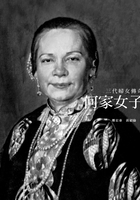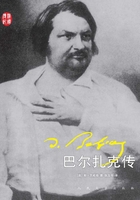If I had only visioned the dance as a solo, my way would have been quite simple。 Already famous, sought after in every country, I had only to pursue a triumphal career。But, alas!I was possessed by the idea of a school—a vast ensemble—dancing the Ninth Symphony of Beethoven。At night, I had only to shut my eyes and these figures danced through my brain in mighty array, calling on me to bring them to life。“We are here。You are the one at whose touch we might live!”(The Ninth Symphony:“Millionen Umschlingen。”)
I was possessed by the dream of Promethean creation that, at my call, might spring from the Earth, descend from the Heavens, such dancing fgures as the world had never seen。 Ah, proud, enticing dream that has led my life from one catastrophe to another!Why did you possess me?Leading, like the light of Tantalus, only to darkness and despair。But no!Still flickering, that light in the darkness must eventually lead me to the Glorious Vision, at last realised。Small, futtering light, just ahead of my stumbling footsteps, I still believe, I still follow you—to find those superhuman creatures that in Harmonious Love will dance the Great Vision of Beauty the world awaits。
With these dreams I returned to Grünewald to teach the little group who were already learning to dance with suchbeauty as to strengthen my faith in the ultimate perfection of an orchestra of dancers—an orchestra which would be to sight what the great symphonies were to sound。
Now resembling the Loves of a Pompeian frieze, now the youthful Graces of Donatello, or, again, the airy fights of Titania's following, I taught them to weave and entwine, to part and unite, in endless rounds and processions。
Each day they grew stronger, more lithe, and the light of inspiration and divine music shone in their youthful forms and faces。 The sight of these dancing children was so beautiful that it awakened the admiration of all artists and poets。
Nevertheless it became more and more difficult to meet the expenses of the school, so I conceived the idea of taking them with me to diferent countries, in order to seek if there were a single Government which would recognise the beauty of this education for children and give me the chance I needed to experiment with my project on a larger scale。
At the end of each performance, I made an appeal to the public for help to fnd some way of giving to others, from my own life, the discovery I had made, and which might liberate and illumine the lives of thousands。
It became clearer and clearer to me that in Germany I would not find the support I needed for my school。 The Kaiserm's views were so puritanical that when she visited a sculptor's studio, she sent her major?domo ahead to cover all the nude statues with sheets。The heavy Prussian regime made it impossible for me any longer to dream of Germany as the country for my work。I then thought of Russia, for there I had found such responsive enthusiasm that I had made a fortune。Keeping in mind a possible school in St。Petersburg, I journeyed there again in January,1907,accompanied by Elizabeth, with a group of twenty of my little pupils。This experiment was not successful。Although the public received with enthusiasm my pleading for a renaissance of the real dance, the Imperial Ballet was too firmly rooted in Russia to make any change possible。
I took my little pupils to witness the training of the children of the Ballet School。 These latter looked at them as canary birds in a cage might view the circling swallows in the air。But the day had not yet come for a school of free human movement in Russia。The ballet, which was the intrinsic expression of Tsaristic etiquette, still exists, alas!The only hope for my school in Russia, a school for a greater, freer human expression, would have been from the eforts of Stanislavsky。But, although he did all in his power to help me, he did not have the means to install us in his great Art theatre, which was what I should have liked。
So, failing to find support for the school either in Germany or Russia, I decided to try England。 In the summer of 1908 I took my fock to London。Under the management of the famous impresarios, Joseph Schumann and Charles Frohman, we danced for several weeks at the Duke of York's Theatre。London audiences looked upon me and my school as a charming amusement, but I could fnd no real aid for the foundation of a future school。
Seven years had passed since I had first danced atthe New Gallery。 I had the joy of renewing my former friendships with Charles Hallé and Douglas Ainslie, the poet。The great and beautiful Ellen Terry came often to the theatre。She loved the children。Once she took them all to the Zoo, to their intense delight。The gracious Queen Alexandra honoured our performances twice by her presence in a box, and many ladies of the English nobility, among them the famous Lady de Grey, who was afterwards Lady Ripon, came quite unpretentiously behind the scenes and greeted me most sweetly。
It was the Duchess of Manchester who suggested that my idea might take root in London and that I might fnd support for my school there。 To that end, she invited us all to her country house on the Thames, where we danced again for Queen Alexandra and King Edward。For a short time I was buoyed up with hopes of a school in England, but in the end—disillusion once more!Where was the building, where the land or the income sufficient to realise my dreams on the large scale that I pictured them?
As always, the expenses of my little fock were enormous。 Once more my bank account was nil, and so, in the end, my school was forced to return to Grünewald, while I signed a contract with Charles Frohman for an American tour。
It cost me many pangs to part from my school, from Elizabeth, and Craig, but, most of all, to forgo the big bond between myself and my baby, Deirdre, who was now almost a year old, and grown into a blonde, rosy?cheeked child, with blue eyes。
And so it happened that one day in July I found myself all alone on a big ship bound for New York—just eight years since I had left there on a cattle boat。 I was already famous in Europe。I had created an Art, a School, a Baby。Not so bad。But, as far as fnances went, I was not much richer than before。
Charles Frohman was a great manager, but he failed to realise that my art was not of the nature of a theatrical venture。 It could only appeal to a certain restricted public。He presented me in the heat of August, and as a Broadway attraction, with a small and insufficient orchestra, attempting to play the“Iphigenia”of Gluck and the Seventh Symphony of Beethoven。The result was, as might have been expected, a flat failure。The few people who wandered into the theatre on those torrid nights, when the temperature was ninety degrees and more, were bewildered, and, most of them, not pleased with what they saw。The critics were few, and wrote badly。On the whole I could not but feel that my return to my native country was a great mistake。
One evening when I was sitting in my dressing?room, feeling particularly discouraged, I heard a fine, hearty voice greeting me, and saw, standing in the doorway, a man, not tall, but of beautiful frame, with a shock of brown curly hair and a winning smile。He held out his hand to me in spontaneous affection, and said so many beautiful things about the effect that my art had upon him, that I felt recompensed for all I had sufered since my arrival inNew York。This man was George Grey Barnard, the great American sculptor。Thereafter he came every night to the performance, and often brought with him artists, poets, and other friends of his, among them David Belasco, the genial theatrical producer, the painters Robert Henri and George Bellows, Percy MacKaye, Max Eastman—in fact, all the young revolutionaries of Greenwich Village。I remember, too, the three inseparable poets who lived together in a tower below Washington Square—E。A。Robinson, Ridgeley Torrence, and William Vaughn Moody。
This friendly greeting and enthusiasm from the poets and artists cheered me immensely, and made up for the meagreness and coldness of the New York audiences。
At that time George Grey Barnard conceived the idea of making of me a dancing statue, to be called“America Dancing。”Walt Whitman has said,“I hear America singing,”and one fne October day, in such weather as is only known in New York in autumn, out at his studio on Washington Heights, we stood together on a hill overlooking the country, and, spreading out my arms, I said,“I see America dancing。”That is how Barnard conceived the statue。
I used to arrive at his studio every morning, bringing a lunch basket。 We spent many delightful hours talking of new plans for art inspiration in America。
In his studio I remember a charming torso of a young girl, for which, he told me, Evelyn Nesbit had posed, before she met Harry K。 Thaw, when she was a simple girl。Her beauty enraptured all the artists。
Naturally, these studio conversations, these mutual ecstasies over beauty had their effect。 I, for one, was willing to give myself body and soul to the task of inspiring the great statue of“America Dancing,”but George Grey Barnard was one of those men who carried virtue to fanaticism。None of my young tender fancies could affect his religious fidelity。The marble of his statues was not any colder nor more severe。I was the ephemeral, he the eternal。What wonder, then, that I desired to be moulded and immortalised by his genius?With every atom of my being I longed to become the mobile clay under his sculptor's hands。
Ah, George Grey Barnard, we will grow old, we will die, but not those magic moments we spent together, I the Dancer, you the Magician who could have seized this dance through its fuid refection—you the Master Power to send the lightning stroke of the moment down to Eternity。 Ah, where is my masterpiece—my chef d'oeuvre—“America Dancing”?I look up and encounter the gaze of Human Pity—of his colossal statue of Abraham Lincoln dedicated to America—the great brow, the furrowed cheeks, furrowed by flowing tears of Human Pity and Great Martyrdom—and I the slight, futile figure dancing before this ideal of superhuman faith and virtue。
But at least I was not Salome。 I wanted the head of no one:I was never a Vampire, but always an Inspirational If you refused me“your lips, Johannes,”and your love, I had the intelligent grace of“Young America”to wish youGodspeed on your journey of virtue。Godspeed, but not adieu, because your friendship has been one of the most beautiful and sacred things of my life。So is the Occidental perhaps wiser than the Oriental sister“I want your mouth, Johannes—your mouth,”and not your head on a charger, for that is the Vampire, not the Inspirational。“Take me!”—“Ah, you won't?Then au revoir, and think of me, and from thoughts of me great future works may come。”
The statue of“America Dancing”had a wonderful beginning, but, alas, no development。 Shortly afterwards, on account of the sudden illness of his wife, the posing had to be abandoned。I had hoped to be his masterpiece, but it was not I who inspired Barnard's masterpiece for America, but Abraham Lincoln, whose statue now stands in the sombre garden before Westminster Abbey。
Charles Frohman, finding that the stay on Broadway was disastrous, attempted a tour in the smaller towns, but this tour was also so badly arranged that it was even more of a failure than the New York performances。 Finally I lost patience, and went to see Charles Frohman。I found him in a very disconcerted state, thinking over all the money he had lost。“America does not understand your Art,”he said。“It is considerably over the heads of Americans, and they will never understand it。It would be better for you to return to Europe。”
I had a contract with Frohman, calling for a six months'tour, with a guarantee, whether or not it made a success。 Nevertheless, from a feeling of hurt pride, and also outof contempt for his lack of sportsmanship, I took this contract and tore it up before his eyes, saying,“At any rate this leaves you free from all responsibility。”
Following the counsels of George Barnard, who told me repeatedly that he was proud of me, as a product of American soil, and that it would be a great sorrow to him if America did not appreciate my art, I decided to stay in New York。 So I took a studio in the Beaux Arts Building, fitted it up with my blue curtains and my carpet, and proceeded to create some new work, dancing every evening for the poets and artists。
In the Sunday Sun of November 15,1908,there was a description of one of these evenings:
“She(Isadora Duncan)is swathed from the waist down in a wonderful bit of Chinese embroidery。 Her short, dark hair is rolled and coiled in a loose knot at the nape of her neck, parted simply Madonna like, about her face……and upturned nose and greyish?bluey eyes。Many of her press notices speak of her as being tall and statuesque—a triumph of art, for she is in reality but five feet six, and weighs one hundred and twenty?five pounds。
“Amber border lights are turned on, and a yellow disc in the centre of the ceiling glows softly, completing the colour efects。 Miss Duncan apologises for the incongruity of the piano music。
“‘There should be no music for such a dance as this,'she says,‘except such music as Pan might make on a reed cutfrom the river bank, a fute perhaps, a shepherd's pipe—that is all。 The other arts—painting, sculpture, music, poetry—have left dancing far behind。It has been practically one of the lost arts, and to try to harmonise it with one so far ahead as music, is difficult and inconsistent。It is to revive that lost art of dancing that I have devoted my life。'
“She has been standing near her parterre of poets when she begins to talk, and when she finishes, she is at the other side of the room。 You do not know how she got there, but you think of her friend Ellen Terry as she does it, and the latter's nonchalant way of ignoring space。
“She is no longer a fatigued, sad?faced hostess, but a pagan spirit, stepping naturally from a bit of broken marble as if that were the most obvious thing in the world to do。A Galatea, perhaps, for certainly Galatea danced in the first few moments of her release。She is Daphne with loosened hair, escaping the embraces of Apollo in that Delphic Grove。Her own hair falls as that simile comes to your mind。
“No wonder she was tired of standing on that piece of Elgin marble all these years for the delectation of British lorgnettes, and the half?disapproving eyes behind them。A long series of Tanagra figurines, the processions of the Parthenon frieze, the garlanded grief of urn and tablet, the abandon of the bacchantes, pass before your eyes, which seem to be watching her, but are in reality watching that whole panorama of human nature before artifice stepped in。
“Miss Duncan admits that her whole life has been an effort to go back, to discover that simplicity which has been lost in the maze of many generations。
“‘In those far?off days which we are pleased to call Pagan, every emotion had its corresponding movement,’she says。‘Soul, body, mind worked together in perfect harmony。Look at those Hellenic men and maidens caught and imprisoned by sculpture’s lure, rather than hacked and chiselled from opposing marble—you can almost tell what they will say to you when they open their lips, and, if they do not open them, what matter, for you know just the same。’
“Then she stops short and is again a dancing sprite, an amber figurine offering you wine from an uplifted cup, throwing roses at Athene's shrine, swimming on the crest of the purple waves of the ?gean Sea, while the poets look on and the Prophet strokes his beard prophetically and one of them quotes softly from John Keats’‘Ode on a Grecian Urn’:
Who are these coming to the sacrifice?
Beauty is truth, truth beauty—that is all
Ye know on earth, and all ye need to know。
“The editor of an art magazine(Mary Fanton Roberts)speaks ecstatically what Miss Duhcan admits has been the most pleasing summing?up of her work that she has read:
“‘It is far back, deep down the centuries, that one's spirit passes when Isadora Duncan dances:back to the very morning of the world, when the greatness of the soul found free expression in the beauty of the body, when rhythm of motion corresponded with rhythm of sound, when the movementt of the human body were one with the wind and the sea, when the gesture of a woman's arm was as the unfolding of a rose petal, the pressure of her foot upon the sod as the drifting of a leaf to earth。 When all the fervour of religion, of love, of patriotism, sacrifice or passion expressed itself to the measure of the cythara, the harp or the timbrel, when men and women danced before their hearthstones and their gods in religious ecstasy, or out in the forests and by the sea because of the joy of life that was in them, it had to be that every strong, great or good impulse of the human soul poured from the spirit to the body in perfect accord with the rhythm of the Universe。'”
George Grey Barnard had counselled me to stay in America, and I was glad I had listened to him。 For, one day, there arrived in the studio a man who was to be instrumental in gaining for me the enthusiasm of the American public。This was Walter Damrosch。He had seen me dancing an interpretation of the Seventh Symphony of Beethoven at the Criterion Theatre, with a small, bad orchestra, and he had had the understanding to realise what would be the effect of this dancing when inspired by his own fine orchestra and glorious conducting。
My studies of the piano and of the theory of orchestral composition, as a child, must have remained in mysubscon?sciousness。Whenever I lie quiet and shut my eyes, I can hear the whole orchestra as plainly as if they were playing before me, and for each instrument I see a god?like figure in movement of fullest expression。This orchestra of shadows danced always in my inner vision。
Damrosch proposed to me a series of representations at the Metropolitan Opera House for the month of December, to which I joyfully assented。
The result was just as he had predicted。 At the first performance, Charles Frohman, who had sent for a box, was astonished to learn that not a seat remained in the theatre。This experience proves that, no matter how great the artist, without the proper setting even the greatest art can be lost。This was the case with Eleanora Duse on her frst tour in America, when, because of poor management, she played to almost empty houses and felt that America could never appreciate her。Whereas, when she returned in 1924,she was greeted from New York to San Francisco with one continual ovation, simply because, this time, Morris Gest had had the artistic intelligence to understand her。
I was very proud to travel with an orchestra of eighty men, conducted by the great Walter Damrosch。 This tour was particularly successful, as there reigned throughout the orchestra such a feeling of good?will towards the chief and towards myself。Indeed, I felt such sympathy with Walter Damrosch that it seemed to me when I stood in the centre of the stage to dance, I was connected by every nerve in my body with the orchestra and with the great conductor。
How can I, describe the joy of dancing with this orchestra?It is there before me—Walter Damrosch raises his baton—I watch it, and, at the first stroke there surges within me the combined symphonic chord of all the instruments in one。 The mighty reverberation rushes over me and I become the medium to condense in unified expression the joy of Brünnhilde awakened by Siegfried, or the soul of Isolde seeking in Death her realisation。Voluminous, vast, swelling like sails in the wind, the movements of my dance carry me onward—onward and upward, and I feel the presence of a mighty power within me which listens to the music and then reaches out through all my body, trying to find an outlet for this listening。Sometimes this power grew furious, sometimes it raged and shook me until my heart nearly burst from its passion, and I thought my last moments on earth had surely arrived。At other times it brooded heavily, and I would suddenly feel such anguish that, through my arms stretched to the Heavens, I implored help from where no help came。Often I thought to myself, what a mistake to call me a dancer—I am the magnetic centre to convey the emotional expression of the orchestra。From my soul sprang fiery rays to connect me with my trembling, vibrating orchestra。
There was a flutist who played so divinely the solo of the Happy Spirits in“Orpheus”that I often found myself immobile on the stage with the tears flowing from my eyes, just from the ecstasy of listening to him, and the singing of the violins and the whole orchestra soaring upwards, inspired by the wonderful conductor。
Louis of Bavaria used to sit alone listening to the orchestra at Bayreuth, but if he had danced to this orchestra, he would have known an even greater delight。
There was a marvellous sympathy between Damrosch and me, and to each one of his gestures I instantly felt the answering vibration。 As he augmented the crescendo in volume, so the life in me mounted and overflowed in gesture—for each musical phrase translated into a musical movement, my whole being vibrated in harmony with his。
Sometimes when I looked down from the stage and saw the great brow of Damrosch bent over the score, I felt that my dance really resembled the birth of Athena, springing full?armed from the head of Zeus。
This tour in America was probably the happiest time of my life, only, naturally, I sufered from homesickness, and when I danced the Seventh Symphony, I pictured about me the forms of my pupils when they should have grown to an age to interpret it with me。 So it was not a complete joy, but the hope of a future, greater joy。Perhaps there is no complete joy in life, but only hope。The last note of Isolde's love song seems complete, but that means Death。
In Washington I was met by a perfect storm。 Some of the ministers had protested against my dance in violent terms。
And then, suddenly, to the astonishment of everyone, who should appear in the stage?box on the afternoon of a matinée, but President Roosevelt himself。He seemed to enjoy the performance, and led the applause after everyitem of the programme。He afterwards wrote to a friend:
“What harm can these ministers find in Isadora's dances?She seems to me as innocent as a child dancing through the garden in the morning sunshine and picking the beautiful fowers of her fantasy。”
This saying of Roosevelt's, which was quoted in the newspapers, considerably abashed the preachers, and aided our tournée。In fact, the entire tournée was most happy and propitious in every way, and no one could have asked for a kinder director or more charming comrade than Walter Damrosch, who had the temperament of a really great artist。In his moments of relaxation he could enjoy a good supper and play upon the piano for hours, never tired, always genial, light?hearted, and delightful。
When we returned to New York, I had the satisfaction of hearing from my bank that I had a goodly deposit to my account If it had not been for the pulling at my heart?strings to see my baby and my school I would never have left America。But one morning I left the little group of friends on the pier—Mary and Billy Roberts, my poets, my artists—and returned to Europe。















